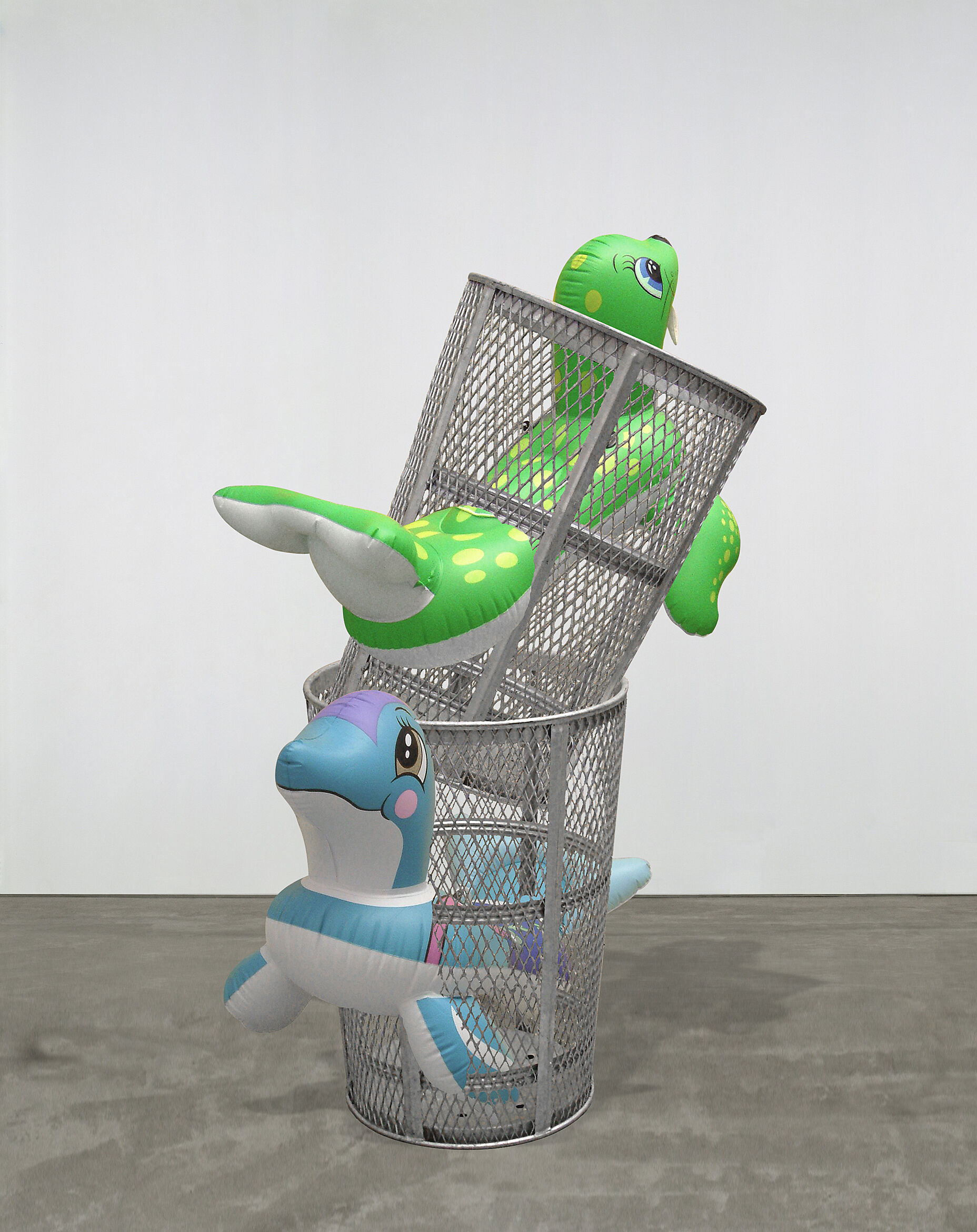Jeff Koons: A Retrospective | Art & Artists
June 27–Oct 19, 2014
Jeff Koons: A Retrospective | Art & Artists
Popeye
11
The Popeye series is named after the cartoon sailor featured in some of its works, yet its true subject may be the artist’s strategic reexamination of the readymade. This device had played a central role in Koons’s earlier bronze and steel casts of consumer products. In this series, rather than transforming a found object into a sculpture by conspicuously translating it from one material into another, he concealed this metamorphosis. The hyperreal cast-aluminum and spray-painted pool toys are stunning feats of artifice, exhibiting minutely rendered puckers along their seams. In some sculptures, Koons pairs these doppelgangers with actual mass-produced objects, such as trashcans and chairs. This contrast challenges and heightens the illusionism of Koons’s casts and raises complex questions about the nature of representation—something he also explores in the related paintings.
Seal Walrus (Trashcans), 2003
In Seal Walrus (Chairs) and Seal Walrus (Trashcans) Koons collides what he calls “altered readymades” with real ones. The first are the colorful, wide-eyed inflatable marine mammals that are meticulously cast and painted to produce an uncanny likeness with the originals. The only clue to their altered state is the fact that they miraculously hold their shape despite being entangled with real readymade chairs and trashcans through an arduous sculptural process. These works demonstrate Koons’s investigation of representation and cloning by juxtaposing multiple examples of mass-produced objects with his careful copies. With slapstick humor, they play with the confrontation and confusion of the authentic and the fake and pit the artist’s careful efforts against the work of industry. In so doing, they also raise underlying questions about labor and value, asking us to consider how we prize some kinds of objects more than others depending on where and by whom they are made.

